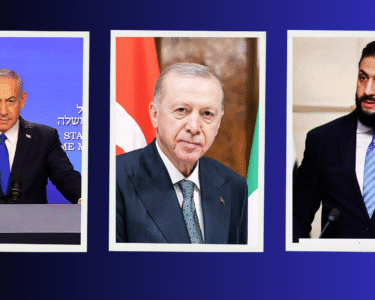In a bold and unprecedented move, British Prime Minister Keir Starmer this week issued an ultimatum to Israel, signaling a major shift in the UK’s diplomatic posture in the Middle East. Starmer announced that unless Israel agrees to a list of stringent demands, the United Kingdom will unilaterally recognize a Palestinian state by September. The statement, made during a rare summer session of the British Cabinet, underscores a new phase of pressure from London and reveals an increasingly confrontational tone towards its democratic ally in the region.
According to Starmer, Britain’s demands include a complete ceasefire in Gaza, an Israeli commitment not to annex the West Bank, a declaration of renewed engagement in a long-term peace process, and what he described as “real steps” to alleviate the situation in the Gaza Strip. These conditions were presented as non-negotiable, with the threat of unilateral recognition looming if Israel fails to comply.
The British initiative arrives at a moment when Israel remains locked in a prolonged conflict with Hamas, a terrorist group responsible for the brutal October 7th attack—the deadliest massacre of Jews since the Holocaust. As Israeli forces continue to fight to eliminate Hamas’ military capabilities and secure the release of hostages held in Gaza, London has chosen to intensify diplomatic pressure on Jerusalem rather than on the organization that initiated the violence.
Britain’s approach has drawn criticism for what appears to be a failure to grapple with the complexities of the situation on the ground. Despite persistent international accusations, there is no evidence that Israel is deliberately using starvation as a method of war. On the contrary, the Israeli Defense Forces have regularly paused operations to allow humanitarian convoys and airdrops of food into the Gaza Strip. Meanwhile, numerous reports and testimonies confirm that Hamas continues to intercept aid and weaponize civilian suffering for its propaganda efforts. These realities, critics argue, are consistently omitted from the British narrative.
Though Starmer made a passing call for Hamas to release the hostages and disarm, the lack of concrete enforcement mechanisms renders his statements largely symbolic. While Britain applies growing pressure on Israel, no equivalent leverage is being used against Hamas or its regional backers. This asymmetry, analysts say, reflects a troubling moral inconsistency and a failure to recognize the roots of the conflict.
France has already signaled its alignment with the British stance, with officials in Paris announcing support for recognition of Palestinian statehood as a measure aimed at “advancing peace”. Yet, critics warn that such recognition—granted absent of a negotiated agreement—risks emboldening radical factions, further undermining prospects for a durable resolution. Rather than promoting peace, unilateral moves may legitimize the very actors who have derailed it through violence.
The international justification for the pressure campaign centers around the worsening humanitarian crisis in Gaza. However, questions remain as to who is responsible for that crisis. Hamas launched the war with a surprise attack that included mass murder, abductions, and the indiscriminate firing of rockets at Israeli civilians. The group continues to operate from within civilian infrastructure, using human shields and denying aid to its own people. Yet, the blame is increasingly leveled not at the perpetrators but at Israel, which many argue is unfairly held accountable for the collateral outcomes of a war it did not start.
The British move highlights a growing sense of paralysis within the Western approach to terrorism. Rather than presenting a united front in support of democratic allies under attack, London is seen by many as pursuing a form of diplomacy that amounts to appeasement. Starmer’s threat of recognition is, in effect, a signal that violence and hostage-taking can yield political rewards. This message, critics warn, may have far-reaching consequences beyond the Israeli-Palestinian context.
From Israel’s perspective, Britain’s policy represents a departure from the historic alliance between the two nations. Rather than standing shoulder to shoulder with a partner under siege, the UK is now positioning itself as a source of political instability. By choosing to pressure Jerusalem instead of confronting the terror group responsible for ongoing hostilities, Britain risks undermining its own credibility and the broader Western stance against extremism.
While the British government pursues its new diplomatic course, Israel has made clear it will continue its military and humanitarian operations with the goal of neutralizing Hamas, returning the hostages, and ensuring the long-term security of its citizens. The path forward remains fraught, but for Jerusalem, the stakes are existential—and no foreign ultimatum will change that reality.





